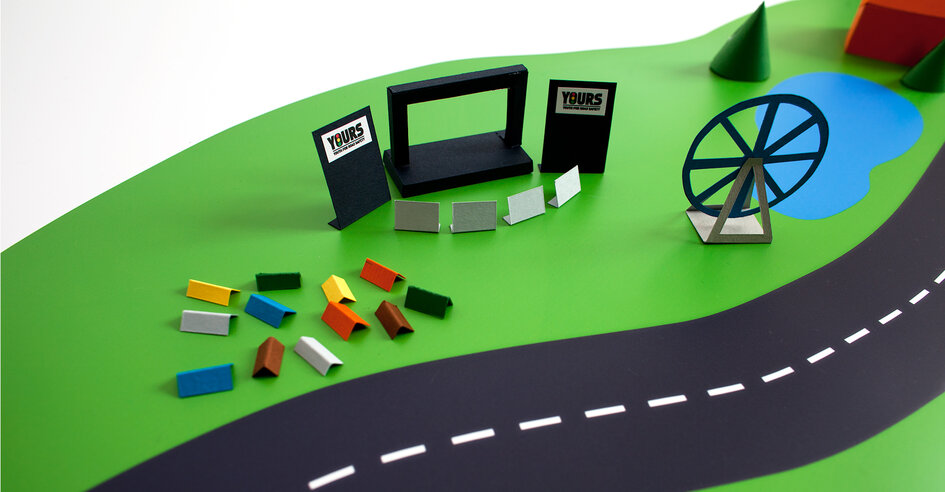
We will be running two workshops at the Global Alliance Meeting in Crete
Next month, the Global Alliance for Road Safety NGOs will hold its 6th meeting in Crete, Greece. YOURS is one of the founder members of the Alliance and has been involved in the meetings since the beginning. The meeting takes place in the city of Chania and will bring together NGOs from all across the world as well as road safety experts.
Prior to the High-Level Symposium, a number of pre-events and workshops are taking place. We will be running a workshop on ‘Youth and Road Safety’ – an insight into evidence-based practices in meaningful youth participation with young people. Our session will also focus on the forthcoming 2nd World Youth Assembly for Road Safety that YOURS is planning prior to the 3rd Ministerial Conference on Road Safety in Sweden (February, 2020).
The youth workshop will focus on the following:
- To raise awareness of the importance of meaningful youth participation in all elements of road safety decision-making and explore the power of youth in road safety;
- Explore why youth should be involved in the 3rd Global Ministerial Conference on Road Safety, Stockholm, Sweden (February 2020), via the 2nd World Youth Assembly (WYA);
- To raise awareness of the WYA that precedes the Ministerial conference;
- Work with NGOs to explore how they can be involved in the WYA and the role of civil society.
| Youth and Road Safety Workshop |
| 10 April 2019 |
| 11:00 – 12:30 |
| Sirocco – Conference Room |
In the build up to the High-Level Symposium, we will also be running a catch up and evaluation session with the previously trained Alliance Advocates who have been working with through the Alliance Empowerment Programme since 2015. Also during the conference, we will presenting on the 5th United Nations Global Road Safety Week.

 What?
What? Date:
Date: Time:
Time: Location:
Location:



 The International Federation of Red Cross and Red Crescent Societies is a worldwide humanitarian aid organization that reaches 160 million people each year through its 190-member National Societies.
The International Federation of Red Cross and Red Crescent Societies is a worldwide humanitarian aid organization that reaches 160 million people each year through its 190-member National Societies. The non-profit Global Road Safety Partnership was formed in 1999. THeir members are leading multi- and bi-lateral development agencies, governments, businesses and civil society organizations. Hosted by the International Federation of the Red Cross and Red Crescent Societies, GRSP is governed through a constitution approved by a Steering Committee of our members.
The non-profit Global Road Safety Partnership was formed in 1999. THeir members are leading multi- and bi-lateral development agencies, governments, businesses and civil society organizations. Hosted by the International Federation of the Red Cross and Red Crescent Societies, GRSP is governed through a constitution approved by a Steering Committee of our members. Nepal Red Cross Society is an independent, volunteer-based and nonprofit-humanitarian organization that delivers humanitarian service and support to the vulnerable people in an impartial and neutral manner. It came into being on 4 September 1963
Nepal Red Cross Society is an independent, volunteer-based and nonprofit-humanitarian organization that delivers humanitarian service and support to the vulnerable people in an impartial and neutral manner. It came into being on 4 September 1963
 Hello,
Hello,

 Road traffic injuries (RTIs) are a major public health threat in Tanzania. The World Health Organization estimates approximately 16,252 lives are lost on the Tanzanian roads each year (29.2 deaths per 100.000 citizens). Almost half are vulnerable road users, like pedestrians, motorcyclists and cyclists. Although the government, enforcement agencies and NGOs have taken various preventive measures, the number of RTIs keeps growing. Adopting a people centered approach to road development can assist in preventing these daily tragedies.
Road traffic injuries (RTIs) are a major public health threat in Tanzania. The World Health Organization estimates approximately 16,252 lives are lost on the Tanzanian roads each year (29.2 deaths per 100.000 citizens). Almost half are vulnerable road users, like pedestrians, motorcyclists and cyclists. Although the government, enforcement agencies and NGOs have taken various preventive measures, the number of RTIs keeps growing. Adopting a people centered approach to road development can assist in preventing these daily tragedies.